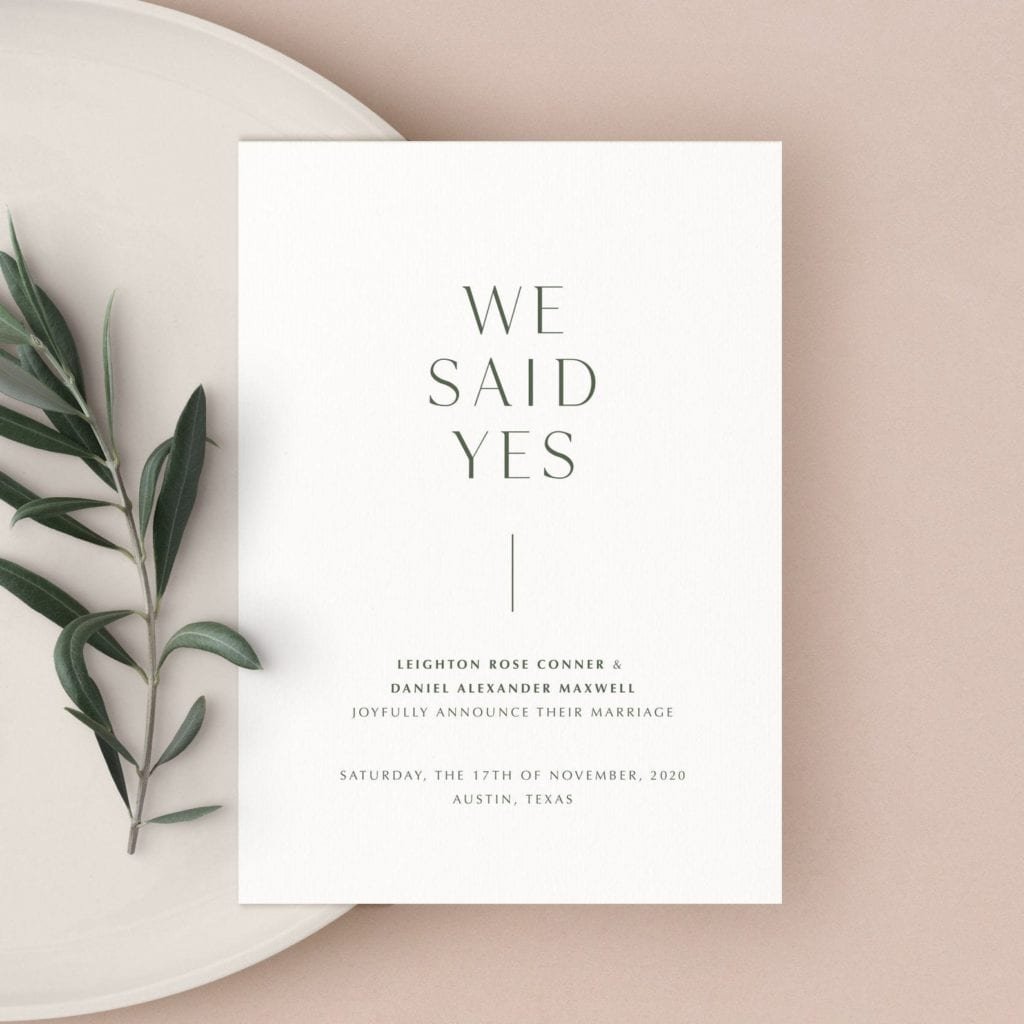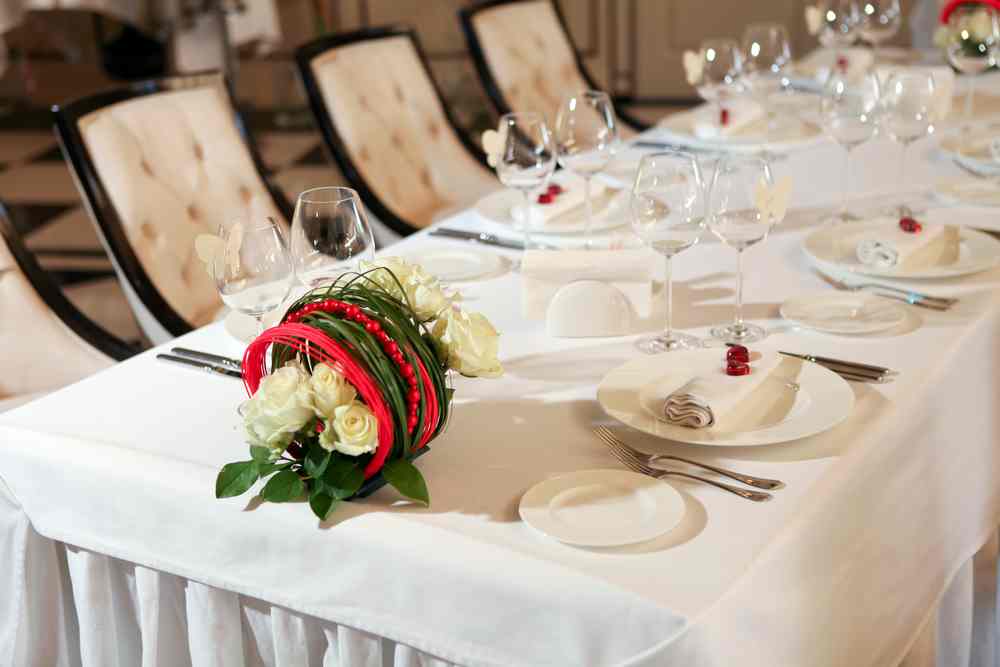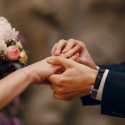Master the Top 20 Wedding Etiquette Rules
Attending a wedding is an exciting honor for guests, but it also comes with important etiquette responsibilities. As a wedding guest, you play a central role in creating a special day for the couple getting married. By following proper etiquette rules, you can ensure your conduct adds to the joy and smooth flow of wedding events.
In this blog post, we will overview the top 20 wedding etiquette rules that all guests should know. From RSVPs and attire to gifts and reception behavior, these guidelines will prepare you to be a thoughtful, respectful, and enthusiastic wedding attendee. With the couple’s wishes and comfort in mind, wedding guests can celebrate this momentous occasion in the most polite and meaningful way.
The Significance of Wedding Etiquette
Wedding etiquette serves an important purpose for guests. By adhering to etiquette guidelines, you demonstrate your care for the couple and respect for their wishes. Proper etiquette also helps events run more smoothly, without unnecessary confusion or distraction. When all guests follow similar etiquette rules, everyone is on the same page about expectations and behaviors.
The Role of Guests in Creating Memorable Weddings
As a wedding guest, you play a special part in making the couple’s big day as memorable as possible. Your presence and participation help make it an event to cherish. By embracing etiquette practices, you ensure you contribute positively to the wedding experience. Your thoughtful presence and conduct can truly enhance this meaningful milestone for the couple.
Overview of the Top 20 Wedding Etiquette Rules
The following wedding etiquette guidelines will cover everything from attire, gifts, and reception behaviors to communication, special events, and emergency situations. By learning these rules in advance, you will feel well-prepared to be a polite, appreciative, and enjoyable wedding guest. Let’s explore the top 20 etiquette practices that every wedding attendee should keep in mind.
Rule 1: RSVP Promptly
Responding promptly to a wedding invitation sets the tone for being a thoughtful, organized guest. Failing to RSVP in a timely manner can cause issues for the couple’s planning and preparations.
Understanding the Importance of RSVPs
RSVPs allow the couple to have an accurate headcount ahead of the wedding. This helps them make proper arrangements for seating, catering, rentals, and all other details. Prompt responses are crucial for their planning process.
The Deadline for Responding
Pay close attention to the RSVP deadline on the invitation. Typically, you will have about 3 weeks to respond after receiving an invitation. Respond as soon as possible instead of waiting until the deadline. Read more about RSVP on invitation and obligations from the host.
Proper Ways to Respond to Invitations
You should respond by mail according to the instructions on the invitation. The couple may also provide RSVP cards or an email address for electronic responses. Express your gratitude for being invited, your response (accept or regret), and contact information for all guests in your party.
Rule 2: Adhere to the Dress Code
The couple has likely chosen a dress code for their wedding that reflects the formality and ambiance they want to create. As a guest, you help set the tone by dressing appropriately.
Deciphering Dress Codes
Common wedding dress codes include black tie, formal, semi-formal, cocktail, and casual. Do research to understand the differences in formality and attire expected for each code. Ask the couple or hosts if you need clarification.
Dressing Appropriately for the Occasion
Make sure your clothing aligns with the specified dress code. Consider the time of day, season, and wedding venue when choosing what to wear. You may need to rent or purchase attire to adhere to the expected dress code.
Avoiding Fashion Mistakes
Steer clear of white dresses, overly revealing styles, jeans, and casual attire if not specified in the dress code. Adhere to the couple’s wishes, even if the dress code is not your personal taste. This shows respect for the occasion.
Rule 3: Arrive on Time
Punctuality is key for wedding guests. Arriving late is inconsiderate and disruptive to the couple’s plans. Make an effort to be timely.
The Impact of Punctuality
Being late can mean missing important parts of the ceremony and causing unwanted distractions for other guests and the hosts. Your presence throughout the duration is meaningful to the couple.
Calculating Travel Time
Do your research to ensure you allot enough time for travel, parking, walking to the venue, and any unexpected delays. Account for traffic, venue crowds, and weather issues. Arrive at least 15-30 minutes early.
Handling Unexpected Delays Gracefully
If an emergency situation arises causing unavoidable delays, immediately contact the couple or hosts to notify them. Offer sincere apologies, and explain the circumstances. Still, make every effort to be there for as much of the wedding as possible. Your communication can help alleviate stress.
Rule 4: Respect the Seating Arrangements
Wedding ceremonies and receptions usually have coordinated seating charts. Respect the couple’s time organizing the arrangements by following any rules.
Understanding the Purpose of Assigned Seating
Assigned seating allows hosts to strategically place guests near welcoming faces, manage accommodation needs, and divide friends and families smoothly. Trust their knowledge of their guests’ needs and relationships.
Finding Your Designated Seat or Table
Check seating charts as you arrive and ask ushers or hosts for guidance if needed. Graciously accept your assigned seat, even if you don’t know other guests at your table. This can be an opportunity to make new acquaintances.
Navigating Special Seating Requests
If you have a specific request, like sitting near elderly family members, communicate that politely to the couple before the wedding. Don’t assume you can make changes on the wedding day. Be gracious if requests cannot be accommodated.
Rule 5: Follow Photography Guidelines
Couples often have rules about taking photos during the wedding and reception. Be cooperative in respecting their wishes.
Unplugged Ceremonies: When to Put Away Your Camera
Some couples request an “unplugged ceremony” prohibiting photos. This allows guests to be present in the moment and professional photos to capture the ceremony without interference. Oblige by keeping cameras and phones stowed away.
Appropriate Times for Capturing Photos
Ask what moments may be appropriate for some photos, like during the processional or recessional. Couples may designate a photo opportunity time. Refrain from taking pictures at inappropriate times that may block views or distract others.
Discreetly Documenting Memorable Moments
You may capture discreet photos at receptions and dances if permitted. Be sure to enjoy the moment and don’t spend all your time behind a camera. Ask before photographing special dances and events the couple have planned. Respect “no photo” wishes.
Rule 6: Wait Your Turn in the Receiving Line
Receiving lines allow guests to greet the newlyweds and their families. Follow proper receiving line etiquette to avoid causing congestion.
Navigating the Receiving Line Protocol
Typically, the head of the receiving line is the bride’s mother, followed by bride’s father, then the bride and groom. Stand patiently as the line progresses, and move forward when appropriate while offering brief congratulatory greetings.
Greeting the Newlyweds and Their Families
Shake hands and offer warm wishes when you reach the bride, groom, and their immediate families. Share your delight at being part of this celebration, but don’t hold up the line for too long. You can engage in more conversation later at the reception.
Expressing Sincere Well Wishes
Receiving lines move quickly with little time for conversation. Share a simple “congratulations and best wishes!” This shows the importance of the couple’s nuptials over your receiving line dialogue. You have the rest of the celebration to interact more meaningfully with the newlyweds.
Rule 7: Be Mindful of Speeches
Wedding speeches and toasts give guests an opportunity to honor the couple. Be tasteful, brief, and considerate when making any remarks.
Crafting Tasteful Toasts and Speeches
Keep toasts short and focused on well wishes for the couple. This may not be the time for overly personal anecdotes or inside jokes that confuse other guests. Keep the focus on celebrating the couple’s love and future.
Keeping Toasts Brief and Uplifting
Long, rambling speeches dampen receptions. Toasts are usually 1-3 minutes. Prepare some meaningful remarks ahead of time. Inspire joy and touch on the couple’s admirable qualities without veering into inappropriate humor. This is a toast, not a roast.
Avoiding Embarrassing or Inappropriate Stories
Refrain from sharing awkward or unflattering stories about the bride or groom. Also avoid divulging private details the couple may not want spotlighted. Exercise good judgment to avoid offensive, polarizing, or discomforting topics. Keep it classy.
Rule 8: Dance Floor Etiquette
Wedding receptions invite celebration through dance. Follow proper dance floor etiquette to let loose while also being respectful.
Joining the Dance Floor at the Right Time
Wait for invited guests to dance first during special dances like the first dance, father-daughter dance, or mother-son dance. You may join festivities during open dancing times. Avoid overtaking the dance floor if you see others waiting on the perimeter.
Respecting Others’ Personal Space While Dancing
Keep reasonable distance between yourself and fellow dancers. Avoid bumping into nearby couples or guests not in your party. Be aware of your surroundings. If you need more space for exuberant moves, kindly move to a less crowded spot.
Demonstrating Appropriate Dance Floor Behavior
Read the room before showcasing questionable dance moves. Keep dancing classy and refrain from inappropriate or potentially dangerous moves that may harm yourself or others. Respect the wedding vibe the couple hopes to achieve.
Rule 9: Enjoy Food and Drink Responsibly
Wedding receptions typically serve food and drinks to entertain guests. Be responsible in your consumption.
Responsible Alcohol Consumption
Only partake in alcohol if permitted at the wedding. Drink legal age-appropriate beverages moderately. Refrain from overindulging, as you should remain courteous and avoid jeopardizing your health or safety. The reception is about celebrating the couple responsibly.
Catering to Special Dietary Needs or Allergies
Notify the couple ahead of time if you have special dietary restrictions. Be grateful for accommodations, though understand if specialty menu items are not possible. Politely decline foods you cannot safely enjoy.
Navigating Buffets and Food Stations Gracefully
Wait your turn in buffet lines or for passed appetizers. Avoid heaping mountains of food onto your plate. Be tidy while eating, and follow any venue rules about taking food or drinks onto the dance floor. Show appreciation to catering staff for their hard work.
Rule 10: Express Gratitude with a Gift or Card
Wedding gifts demonstrate love, support, and congratulations for the couple’s marriage. Choose gifts thoughtfully or contribute to cash registries.
Selecting Gifts from the Couple’s Registry
Couples often register for gifts at stores or create online wishlists. These registries conveniently guide you toward present ideas in your budget that the couple will appreciate. Purchasing registry gifts is a fail-safe option.
Thoughtful Alternatives to Registry Gifts
If you prefer giving a non-registry gift, choose something thoughtful like a personalized photo album, custom artwork, or meaningful memento. Make sure it aligns with their taste, lifestyles, and values. When in doubt, contribute to their honeymoon fund.
Including a Heartfelt Congratulatory Card
Always enclose a card with your gift expressing well wishes. Handwritten notes emphasizing your happiness for the couple on their matrimony add a personal, human touch. Make your congratulations sincere and specific.
Rule 11: Respect Cultural and Religious Traditions
Couples often incorporate cultural or religious traditions into their weddings. Honor their heritage by embracing relevant customs.
Understanding and Participating Respectfully
Do research ahead of time to understand the significance of any traditions outside of your own culture or faith. Ask someone from the couple’s background how to politely participate or observe respectfully if unsure.
Embracing Diverse Wedding Ceremonies
Display enthusiasm for unfamiliar rituals the couple chooses to incorporate, like unity candles, ring warming ceremonies, jumping the broom, or Circling. Keep an open mind instead of questioning differences.
Following Customary Practices
Some faiths have head covering requirements, seating sides by gender, or restrictions on photography. Honor the couple by following relevant guidelines. Value celebrating in the way most meaningful to them.
Rule 12: Follow Special Requests from the Couple
Couples may make unique requests based on their preferences. From unplugged ceremonies to dessert potlucks, accommodate their wishes.
Accommodating Special Requests
If the couple requests something unusual like having an unplugged ceremony or asking guests to wear costumes, put extra effort into cooperating. This shows you prioritize their desires on their wedding day.
Honoring Couples’ Preferences for Unusual Traditions
Keep an open mind if the couple wishes to choreograph unique dances, have out-of-the-ordinary entertainment, or feature odd décor. Their wedding should align with their personalities. Support their vision by embracing differences.
Being Flexible and Supportive
While unusual requests are not mandatory, being flexible and embracing their wishes lets you help make their ideal wedding vision come true. Set aside your own preferences to support them in having this special day align with their dreams.
Rule 13: RSVP for Additional Events
Besides the ceremony and reception, couples may host other pre-wedding and post-wedding events. Be responsive about attending these too.
Responding to Pre-Wedding and Post-Wedding Events
The couple may invite you to a welcome dinner, day-after brunch, or other surrounding events. RSVP to related social gatherings just as you would for the wedding invitation.
Showing Enthusiasm for Celebrating with the Couple
Try your best to attend any additional celebrations hosted in honor of the couple’s nuptials. This shows you want to share in the excitement of their engagement and new marriage from start to finish.
Being Mindful of Capacity Constraints
While it is thoughtful to attend additional celebrations, be conscious that smaller or informal events may have greater capacity constraints. The couple will understand if you cannot make every single gathering due to limits on attendance.
Rule 14: Respect Children and Plus-Ones Policies
Couples decide if wedding invitations include children and plus-ones. Adhere to their preferences on these additions.
Navigating Invitations for Children
The invitation will address if children are included. If your kids are welcomed, inform hosts ahead of time. Secure babysitters if kids are excluded. Graciously abide by the couple’s choice for kid-free or child-inclusive.
Understanding Plus-One Invitations
Note if you are invited with a guest or if the invite is just for you. Some couples are unable to accommodate all guests bringing plus-ones. Only bring uninvited partners if the hosts permit.
Communicating Preferences with the Couple
If invited without a plus-one but you prefer to bring your partner, politely check in with the couple on their policy. Explain your reasoning, but understand if they cannot accommodate an extra guest.
Rule 15: Handling Dietary Restrictions and Allergies
Inform the couple in advance about dietary issues so they can accommodate appropriately.
Informing the Couple of Dietary Needs
Let the couple know as soon as possible about any food allergies, intolerances, or restrictions related to health conditions, religion, or personal preferences. This allows time to adapt menus and inform caterers.
Being Considerate of Meal Requests
Understand that caterers may not be able to cater separately to every individual guest’s needs. Work collaboratively to find reasonable accommodations. Bring food supplements if needed and discuss safe serving practices.
Graciously Navigating Dietary Limitations
Accept that specialty dishes may not be guaranteed. Appreciate any efforts made for inclusivity, but be discreet about bringing your own food when needed for medical or religious reasons. Focus on celebrating the couple rather than catering inconveniences.
Rule 16: RSVP for Special Events
Besides the wedding itself, couples may host pre-wedding parties and events for their bridal party. Follow proper etiquette when responding.
Responding to Pre-Wedding Celebrations
If invited to pre-wedding showers, bachelor/bachelorette parties, rehearsal dinners, or other gatherings, RSVP just as you would for the wedding. These events also require headcounts for planning.
Gift-Giving Etiquette for Special Events
You need not bring multiple gifts, but card and menorah gifts are customary if you attend pre-wedding celebrations. Contribute to group gifts from the wedding party when coordinated by the honor attendants. See bachelorette party etiquette
Attending with Enthusiasm and Appreciation
Make an effort to show your support by attending related special events hosted in honor of the couple whenever feasible. This demonstrates your excitement for commemorating their upcoming nuptials.
Rule 17: Being Respectful of the Wedding Venue
Wedding locations like ceremony sites, reception halls, and religious buildings deserve utmost respect from guests.
Adhering to Venue Rules and Regulations
Follow all guidelines enforced by wedding venues, like codes of conduct and policies on photography, food and drink, smoking, and parking. Respect the space by following appropriate protocols.
Keeping the Venue Clean and Tidy
Avoid littering or leaving behind clutter at venues. This includes reception hall decorations, programs, and food waste. Ask staff for proper disposal assistance when needed.
Demonstrating Reverence for Sacred Spaces
Understand and follow expected etiquette when attending weddings in houses of worship. Dress and behave respectfully, keeping noise levels down and refraining from disruptions during rituals and services. Honor the sanctity of the space.
Here is the continuation of the blog post:
Rule 18: Handling Unexpected Changes or Emergencies
With many moving parts, weddings can be subject to unexpected changes and emergencies. Adapt gracefully if faced with surprises or urgent situations.
Being Prepared for Unexpected Situations
Understand that last-minute changes or unforeseen problems may arise on the wedding day, from ceremony delays to lost rings. Keep an open mind and lighthearted attitude if faced with the unplanned.
Communicating Changes or Delays with the Couple
If something prevents you from fulfilling your wedding responsibilities, urgently notify the couple and offer sincere apologies. For example, immediately inform them if you are unable to perform your role as a reader or usher.
Offering Support and Understanding in Emergencies
The couple likely feels worried and stressed if facing a wedding day emergency. Provide compassion, keep frustrations hidden, offer practical assistance, and provide emotional reassurance if possible. Your support can uplift them even amid chaos.
Rule 19: Express Gratitude After the Wedding
Keep the gratitude flowing by thanking the couple and any hosts after the celebrations conclude. Show appreciation for their hospitality.
Sending Thank-You Notes to the Couple
Write heartfelt thank-you notes emphasizing how honored you felt to witness and partake in their wedding celebrations. Describe your favorite moments and well wishes for their marriage. Handwritten notes are meaningful.
Acknowledging Hosts and Hostesses of Pre-Wedding Events
If people other than the couple hosted engagement parties, showers, or rehearsal dinners in your honor, write separate notes thanking event hosts for their generosity and celebration of the couple’s love.
Reflecting on the Wedding Experience and Memories
Beyond expressing gratitude, share how the experience impacted you and offer ongoing support as the couple embarks on married life. Check in periodically to commemorate their first months and years as newlyweds.
Rule 20: Embrace Wedding Responsibilities
If you have a special role in the wedding, like officiant, reader, or usher, embrace your duties fully. The couple is depending on you.
Understanding Expectations of Your Role
Confirm with the couple what is required of wedding party members, family members, or special participants. Know your deadlines for choosing attire, making travel arrangements, and rehearsing any special parts.
Making Related Events a Priority
Attend all relevant ceremonies and gatherings associated with your role, like rehearsals, farewell brunches, or pre-wedding photo sessions. Make fulfilling your position a priority out of respect for the couple.
Executing Your Part Flawlessly
On the wedding day, devote your full attention and energy to gracefully executing your role and responsibilities. Hone your speech, prepare materials, dress appropriately, and do your part to make the occasion magical.
FAQ
Q: What is the principal rule to follow when receiving a wedding invitation?
A: The principal rule is to respond as soon as possible. The deadline for a response is typically specified on the invitation. It is a crucial part of wedding planning for the couple, as knowing the guest list number is instrumental for their organization and cooperation with wedding vendors.
Q: What should I do if I can’t attend the wedding?
A: If you receive a wedding invitation and realize that you cannot attend the wedding, it’s important to notify the couple as soon as possible. This way, they can adjust their guest list and wedding planning accordingly.
Q: Is it acceptable to bring a plus one if it wasn’t mentioned in the wedding invitation?
A: In general, if the wedding invitation doesn’t specify that you can bring a plus one, you shouldn’t. It’s important to respect the couple’s planning and guest list and follow the guide to wedding etiquette rules everyone should follow.
Q: Is it necessary to give a gift, even if I can’t attend the wedding?
A: Yes, even if you can’t attend the wedding, it’s still proper etiquette to give a gift. This can be something from a traditional wedding registry or a monetary contribution.
Q: Can I post pictures of the wedding day on my social media?
A: It’s best to check with the bride and groom beforehand. Some couples may request that guests do not post pictures of their wedding day on social media until they have done so themselves. It is one of the wedding etiquette rules everyone should always follow.
Q: Is an adults-only wedding a violation of wedding etiquette rules?
A: No, it’s perfectly acceptable for a couple to decide to have an adults-only wedding. The decision should be respected and followed by all guests. It’s best to mention this on the wedding invitation or wedding website to avoid any miscommunication.
Q: How to handle asking for cash instead of a gift during wedding planning?
A: It’s becoming more common for couples to ask for cash as a gift. It’s generally considered acceptable as long as it’s done tactfully. The information should be conveyed through a bridal shower or on a wedding website rather than directly on the wedding invitation.
Q: Is it acceptable for a guest to wear white to a wedding?
A: The general rule is that only the bride should wear white on the wedding day. This is to allow her to stand out as the bridal star. As a guest, it’s better to choose another color for your outfit as part of the guide to wedding guest attire.
Q: Are friends obligated to be a part of the bridal shower?
A: While it’s a traditional part of many weddings for friends to be involved in the bridal shower, it is not an obligation. Friends may not be able to commit due to personal circumstances, costs, or pressures, and this should be respected.
Q: Who is responsible for planning a wedding?
A: The responsibility for planning a wedding traditionally falls to the bride and her family. However, modern practices often involve both the bride and groom in wedding planning, along with a professional wedding planner.
Conclusion
By keeping these top wedding etiquette rules in mind as a guest, you now understand the polite practices that allow you to honor the couple, respectfully partake in celebrations, and contribute to a memorable wedding day. With graciousness, flexibility, and consideration as your guide, you are prepared to be a delightful wedding attendee who adds joy and smooth functioning to whatever weddings you attend.
Remember that your conduct and enthusiasm as a participant impacts the couple’s experience. Follow proper etiquette not simply for formality, but to surround the newlyweds with positive vibes, supportive love, and communal celebration. Embrace your role in making their matrimony memorable for all the right reasons.
Recap of the Top 20 Wedding Etiquette Rules for Guests
These guidelines provide a roadmap to being a polite, celebratory, and responsible wedding guest:
- RSVP promptly upon receiving invitations
- Dress appropriately per the established dress code
- Arrive on time for all events
- Respect assigned seating and arrangements
- Follow rules regarding photos/videos
- Wait your turn in receiving lines
- Give brief, tasteful toasts
- Mind your manners on the dance floor
- Drink and dine with discretion
- Give thoughtful gifts or contribute to registries
- Honor cultural/religious traditions
- Accommodate couples’ special requests
- Attend related pre/post wedding events if possible
- Respect guest policies regarding kids and plus-ones
- Disclose dietary issues/allergies in advance
- RSVP to pre-wedding parties and showers
- Treat the wedding venue with respect
- Adapt gracefully to unexpected changes
- Send handwritten thank-you notes
- Execute wedding responsibilities flawlessly
Emphasizing the Role of Guests in Creating Memorable Celebrations
By following proper etiquette guidelines, guests allow the focus to remain on the couple while also playing an integral role in the success and enjoyment of wedding festivities. You become part of a supportive community leading up to and on the couple’s big day by embracing etiquette. When guests unite through polite behaviors, weddings become that much warmer, smoother, and imbued with love.
Encouraging Respectful and Joyous Wedding Experiences
Weddings are about more than proper etiquette—they are community gatherings rooted in deep love. Though following guidelines creates a foundation, remember to get caught up in the joy and human moments. Through your grace, flexibility, and devotion when attending weddings, you have the power to ensure wedding experiences emphasize devotion, celebration, and nurturing support on the couples’ new chapter. Your role matters.







